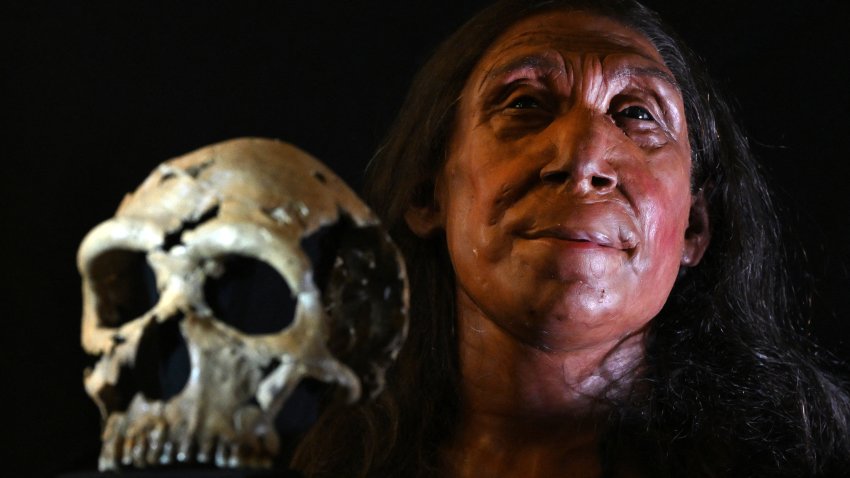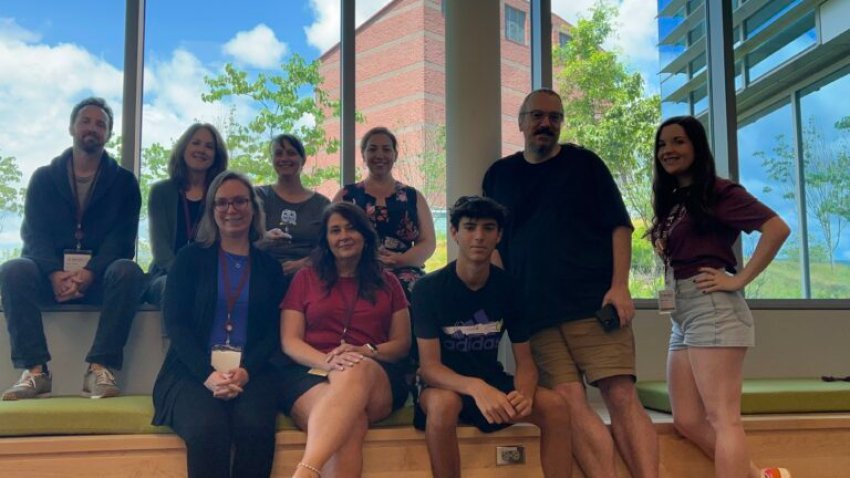-

The moon may be more than 100 million years older than previously thought, study finds
The moon may be more than 100 million years older than some scientists previously thought, according to a new study.
-

‘Science is a Drag' fuses drag, science and humor at Oakland's Chabot Center
Science meets drag in a fun-filled night of science, humor, and drag at the Chabot Space and Science Center in Oakland on Friday, hosted by local drag superstar VERA.
-

‘Science is a Drag' fuses drag, science and humor in Oakland's Chabot Center
Science meets drag in a fun-filled night of science, humor, and drag at the Chabot Space and Science Center in Oakland on Friday, hosted by local drag superstar VERA.
-

Is the sky extra blue in fall?
Before we can understand why the sky looks bluer in the fall, it’s important to first know why the sky appears blue in the first place.
-

Could a monkey write Shakespeare before the universe dies? New research questions old theorem
The Infinite Monkey Theorem is “grossly misleading in the real world,” one of the Australian mathematicians behind a new study questioning the age-old maxim told NBC News.
-

Once in a lifetime ‘Zombie Star' may be visible Halloween night, NASA scientists say
Keep an eye on the night sky this Halloween night, NASA scientists expect a stellar explosion to wake up a dead star.
-

Once in a lifetime ‘Zombie' star may be visible tonight, NASA scientists say
Keep an eye on the night sky this Halloween night, NASA scientists expect a stellar explosion to wake up a dead star
-

Smithsonian displays 1st humanoid robot to go to the International Space Station
NASA is no stranger to spacefaring robots. But “Robonaut 2,” the first human-shaped robot to fly to the International Space Station, is something special. The robot is now on display at the Udvar-Hazy center in Virginia.
-

The science behind why people think they're right when they're actually wrong
There may be a psychological reason why some people aren’t just wrong in an argument — they’re confidently wrong.
-

What's behind the northern lights that dazzled the sky farther south than normal
NOAA issued a severe geomagnetic storm alert on Wednesday after an outburst from the sun was detected earlier in the week. Here’s why they were visible in many parts of the U.S.
-

Nobel Prize in chemistry awarded to 3 scientists for work on proteins, building blocks of life
The Royal Swedish Academy of Sciences has awarded the Nobel Prize in chemistry to David Baker, Demis Hassabis and John Jumper for their work with proteins.
-

Earth's orbit is getting a new moon. Here's what that means
A new moon will be pulled into Earth’s orbit by the end of September, but it won’t stay there forever. Here’s why.
-

13,600-year-old mastodon skull discovered in Iowa
Archaeologists in Iowa unearthed parts of a mastodon fossil, including its skull, that they believe dates back to when the first humans lived on Earth.
-

Perseid meteor shower, one of the most dramatic of the year, is underway
One of the best meteor showers of the year is underway, offering a chance to see shooting stars in the summer night sky.
-

The world's oldest wine has been discovered with an unexpected extra ingredient — a man's ashes
Although the liquid has a reddish hue, chemical analysis established that “the wine contained in the urn was white,” according to new analysis published this week.
-

New research explores how a short trip to space affects the human body
NASA and others have long studied the toll of space travel on astronauts, including yearlong residents of the International Space Station, but there’s been less attention on space tourists.
-

Northern lights put on a show during geomagnetic storm
A severe solar storm led to beautiful views of the northern lights Friday.
-

Face of a 75,000-year-old Neanderthal woman revealed by scientists
The reconstructed face is closer than expected to that of modern-day humans, meaning it’s “perhaps easier to see how interbreeding occurred,” experts said.
-

Jawbone found by rock-collecting child identified as U.S. Marine who died in 1951 training accident
A jawbone discovered two decades ago in Arizona by a boy with a rock collection was positively identified as belonging to a U.S. Marine who died in a 1951 training accident decades later.
-

More than a sphere: Why people still buy globes in the age of technology
In the age of Google Earth, watches that triangulate and cars with built-in GPS, there’s something about a globe — a spherical representation of the world in miniature — that somehow endures

